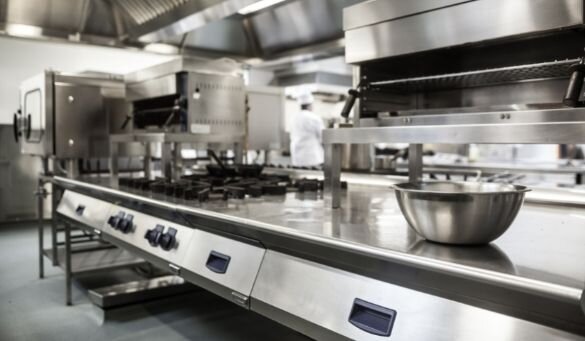What To Consider When Designing a Commercial Kitchen
Once you’ve set up your food-based business, it's time to start planning your design, but where do you start? It all starts with pre-planning. The best plans often come from the heart, mainly if you serve a particular food style. Find out what to consider when designing a commercial kitchen in your restaurant or other food-based business.
Figure Out the Menu
The first thing to note is what your menu will look like. If you're serving basic foods, your encumbered list of equipment can get cut down to the simple gear. However, if you're planning to operate an overwhelming menu exploring a specific cuisine, or maybe it's a fusion of the two, you'll want to understand the food processes and what's needed to prepare each dish.
Communicate With Design Teams
Creating a commercial kitchen is not a one-person job. When it comes to the nitty-gritty, you'll need to work with separate departments to ensure that all messages and plans are addressed well. Also, coordinate with a chef about the kitchen's layout to determine how many stoves will be needed, if there are safety measures that need to be followed, and how and where the food will be delivered. Your kitchen setup helps other workers know where everything will be and where to pick up an order—whether it's take-out, delivery, or dine-in.
Design Your Space Top To Bottom
In this step, you’ll begin to work with other departments to figure out the appropriate equipment to use in your cooking area. When you’re in your space, make some measurements to help determine the right range hood for the height of your kitchen. Once all sizes are figured out, you'll have a better idea of what other appliances and gear you need for your kitchen.
In the realm of professional culinary spaces, Commercial kitchen floor coatings stand out as indispensable assets for ensuring optimal hygiene and safety. It’s important to recognize the significance of investing in durable and easy-to-maintain surfaces. These coatings offer a seamless blend of functionality and aesthetics, contributing to a pristine and inviting kitchen environment. Businesses aiming for excellence prioritize commercial kitchen floor coatings to uphold cleanliness standards, creating a foundation for success in the food industry.
Determine the Kitchen System
Each kitchen is built differently, and you should consider how you'll implement a proper kitchen flow to figure out what areas need to be used for storage, paths, and separate working areas. Consider things like the assembly line and modular stations. If you're looking to implement third-party delivery options for customers, consider a designated pick-up area for those types of orders.
You Need To Meet Health Codes and Regulations
When designing your commercial kitchen, it's vital to meet all codes through the FDA and OSHA. OSHA regulations comprise having a proper placement of emergency equipment like fire alarms, smoke detectors, and others. For the FDA, it's standard to meet all codes and regulations regarding the production of food products, how it's prepared, served, handled, and what equipment is used. Also, take into consideration your state's specific laws.
Don’t have trouble navigating without looking at what to consider when designing your commercial kitchen, so you know what to do. Pre-planning your layout plan will help in the long run when you need to make any changes in the future.



